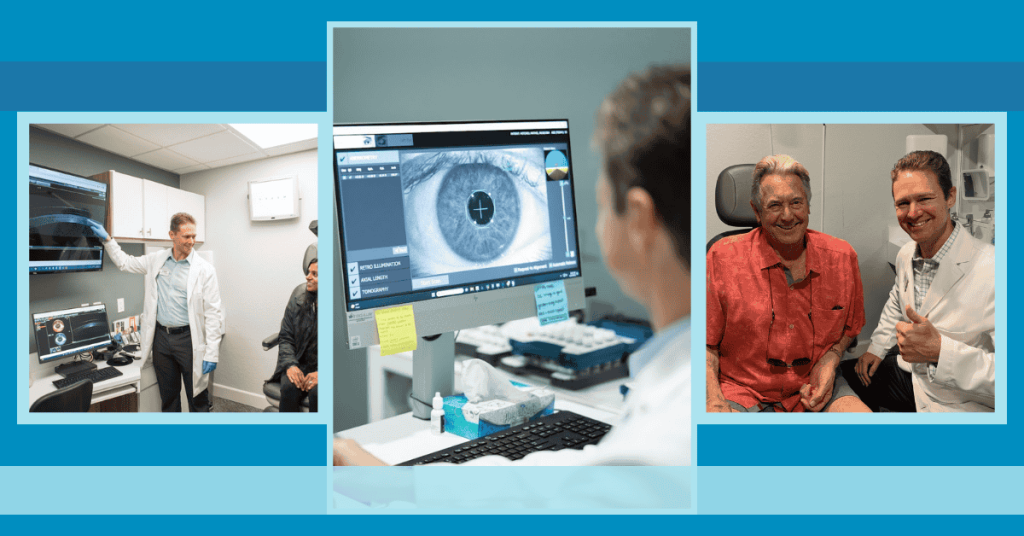Dry eye isn’t just a minor inconvenience—it can interfere with work, outdoor activities, and your overall quality of life. At Insight Vision Center Optometry in Costa Mesa, we specialize in identifying whether your medications might be contributing to your symptoms and offering solutions to restore your comfort.
Why Do Medications Cause Dry Eye?
Certain medications can interfere with your eye’s natural tear production and stability, leading to irritation, redness, and blurry vision. This happens when medications:
- Reduce Tear Production: Some drugs block signals to tear glands.
- Affect Tear Film Balance: Changes to the oil or water layers of your tears can cause rapid evaporation.
- Promote Dehydration: Diuretics and similar medications may reduce overall moisture in your body, including your eyes.
If dry eye is disrupting your life, expert care is just around the corner. Located in Costa Mesa, we proudly serve Irvine, Santa Ana, Huntington Beach, and all of Orange County. Schedule an appointment today and take the first step toward lasting relief.
Summary of Medications Associated with Dry Eye
Known Causes
These medications have been confirmed as significant contributors to dry eye:
- Antihistamines: Diphenhydramine (Benadryl), Loratadine (Claritin), Cetirizine (Zyrtec).
- Reduce aqueous tear production due to anticholinergic effects.
- Antidepressants: Amitriptyline, Nortriptyline, Sertraline (Zoloft), Fluoxetine (Prozac).
- Disrupt neurotransmitter pathways, reducing tear secretion.
- Blood Pressure Medications: Metoprolol, Atenolol, Hydrochlorothiazide, Furosemide (Lasix).
- Beta-blockers lower tear proteins, while diuretics dehydrate the body.
- Chemotherapy Drugs: Methotrexate, Cisplatin, Cyclophosphamide.
- Damage lacrimal glands and disrupt ocular surface homeostasis.
- Glaucoma Eye Drops: Latanoprost, Timolol, Dorzolamide (Trusopt).
- Preservatives like BAK irritate the ocular surface.
- Anti-Acne Medications: Isotretinoin (Accutane).
- Reduce oil production in meibomian glands, destabilizing the tear film.
- Anticholinergics (General): Atropine, Scopolamine.
- Decrease secretion from lacrimal and goblet cells.
Suspected Causes
These medications are associated with dry eye but require further research for confirmation:
- H2 Antihistamines: Cimetidine (Tagamet), Famotidine (Pepcid AC).
- Likely impact muscarinic receptors, reducing aqueous secretion.
- Proton Pump Inhibitors (PPIs): Omeprazole (Prilosec), Pantoprazole (Protonix).
- May disrupt the conjunctival microbiome or cause vitamin B12 deficiency.
- Analgesics: Aspirin, Ibuprofen, Naproxen.
- Affect tear film stability and increase evaporation.
- Cannabinoids: THC (Tetrahydrocannabinol).
- Activate CB1 receptors in lacrimal glands, reducing tear secretion.
- Anti-Parkinson’s Medications: Levodopa, Benztropine.
- Block neural signaling to tear glands.
- Antipsychotics: Haloperidol, Quetiapine (Seroquel), Risperidone (Risperdal).
- Exhibit anticholinergic effects that impair tear production.
- Sedatives and Hypnotics: Diazepam (Valium), Zolpidem (Ambien).
- Suppress neural stimulation of lacrimal glands.
- Anticancer Drugs: Adalimumab (Humira), Infliximab (Remicade).
- May disrupt immune function and tear homeostasis.
- Anti-Epileptic Drugs: Carbamazepine (Tegretol), Gabapentin (Neurontin).
- Interfere with nerve signals necessary for tear secretion.
- Immunosuppressants: Cyclosporine, Azathioprine.
- Suppress immune function, reducing tear gland activity.
- Vitamins and Supplements: Niacin (Vitamin B3), Echinacea, Kava.
- Mechanisms are unclear but may mimic dry mouth effects.
- Alcohol: Alters tear osmolarity, leading to instability and evaporation.
Recognizing Medication-Induced Dry Eye
Could your medications be the reason behind your dry, irritated eyes? It’s a possibility worth considering. Here’s how you can take proactive steps to uncover the connection and find relief:
Pay Close Attention to Your Symptoms
Start by noting when your discomfort began. Have you recently started new medications or adjusted your dosage? This small step can provide big clues in identifying the cause.
Partner with Your Healthcare Team
Speak with both your prescribing doctor and our eye care specialists. Adjusting your medication or exploring alternatives might be all you need to ease your symptoms.

Schedule a Dry Eye Evaluation At Orange County’s Top Rated Specialty Eye Care Center
Let’s take a deeper look. Located in Costa Mesa, our highly-rated team at Insight Vision Center Optometry offers advanced testing to assess tear production and evaluate the health of your eyes. We proudly serve patients from Irvine, Santa Ana, Huntington Beach, and across Orange County. Book an appointment today and let us help you find real relief.
You don’t have to live with the discomfort of medication-induced dry eye. With awareness, expert care, and tailored treatment plans, you can regain comfort and clarity. At Insight Vision Center Optometry, your eye health is our priority — let’s start your journey to relief today!





